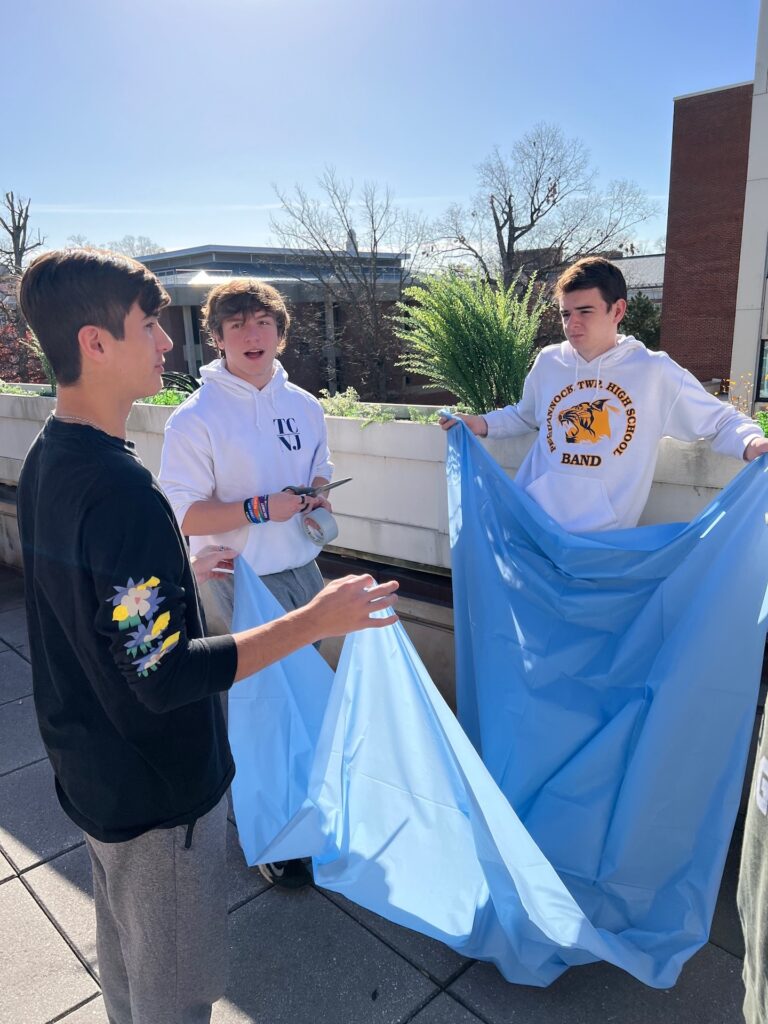
School of Education faculty member Steven Singer used to jump out of airplanes in the Army. These days he climbs mountains and teaches his students how to survive in the event of an apocalypse. We spoke to Singer about his first-year seminar course, “The Last of Us: A Study of Human Nature and Threats to Humankind.”
Why a course on survival skills?
Growing up I was very active with the Boy Scouts and I also served three years in the Army Airborne Infantry, stationed at Fort Bragg, North Carolina. During that time, I did a lot of training exercises and jumped out of airplanes but I decided that wasn’t the right career path for me. When I left the Army, I got into mountaineering and I still do a lot of mountain climbing, so outdoor skills have always been a huge thing for me. I was excited to develop a course around outdoor survival skills because I think a lot of young people don’t have the opportunity to develop them. Also, this gives students the opportunity to get outside of the physical classroom and learn to do things they probably never thought they’d have the opportunity to learn.
How did you work an academic element into the course?
The first-year seminars are writing intensive, so students have to complete about 20 pages of formal writing. The goal is for them to use the outdoor survival skill training as a context to study threats to human sustainability. That could be war, resource depletion, climate change, celestial events and other things of that nature. Half the course is studying those events through various films, documentaries, and discussions and the other half is the outdoor skills component. I set it up for the students as the “end of the world.” How did that happen and now what are we going to do? I teach them what they can do to survive and then we explore these various threats to human sustainability.
What are some of the skills that the students learn during the semester?
Every week I create a scenario and I teach them some skills associated with that scenario. Then they have a challenge that they have to tackle. The skills we cover include knot tying and lashing, water collection and treatment, emergency rescue, fire building — with matches, by friction, and by flint and steel —shelter building, orienteering, and geocaching. The students are divided into teams that they maintain for the entire semester and they even make flags with their team names as a bonding exercise. Their objective is to “survive the apocalypse.” For each survival workshop they are awarded survival points and then at the end of the semester, there’s an award ceremony.
What has the response been from students who have taken the course?
Every year, in the class of about 20 students, there are maybe four students who have the initial reaction of “I’m not entirely sure I really want to do this” or maybe they even roll their eyes a few times.
But I’ve not yet experienced anyone getting to the end of the semester without enjoying themselves and learning a lot. Ultimately, most students enjoy doing things they never thought about before and learning skills they never thought they would have. The course also encourages them to think about things differently. Some of the challenges are more practical than others but there are still lessons to be learned about teamwork and the importance of morale during times of crisis.
What do you hope students take away from the course, beyond the skills they learn?
I want them to leave being more thoughtful about things like consumption, diet, the use of plastics, those kinds of things. They won’t become experts but they will write two papers as the major work of the course and each paper focuses on one threat to sustainability both domestically and globally. What contributes to these problems? How does human behavior factor in? How do we handle adversity and crisis? These are some of things I want them to be thinking about beyond just this course.
— Luke Sacks
